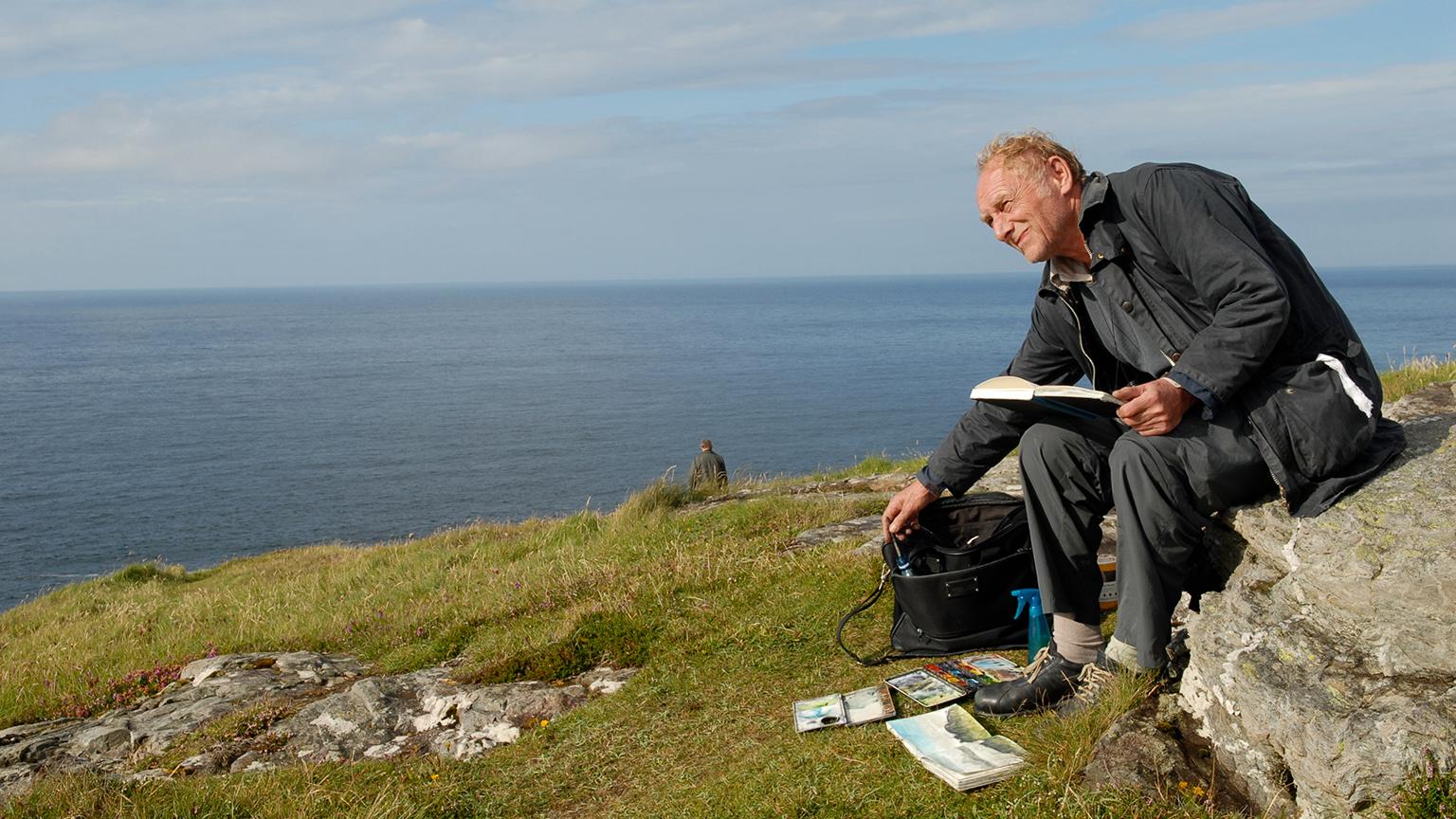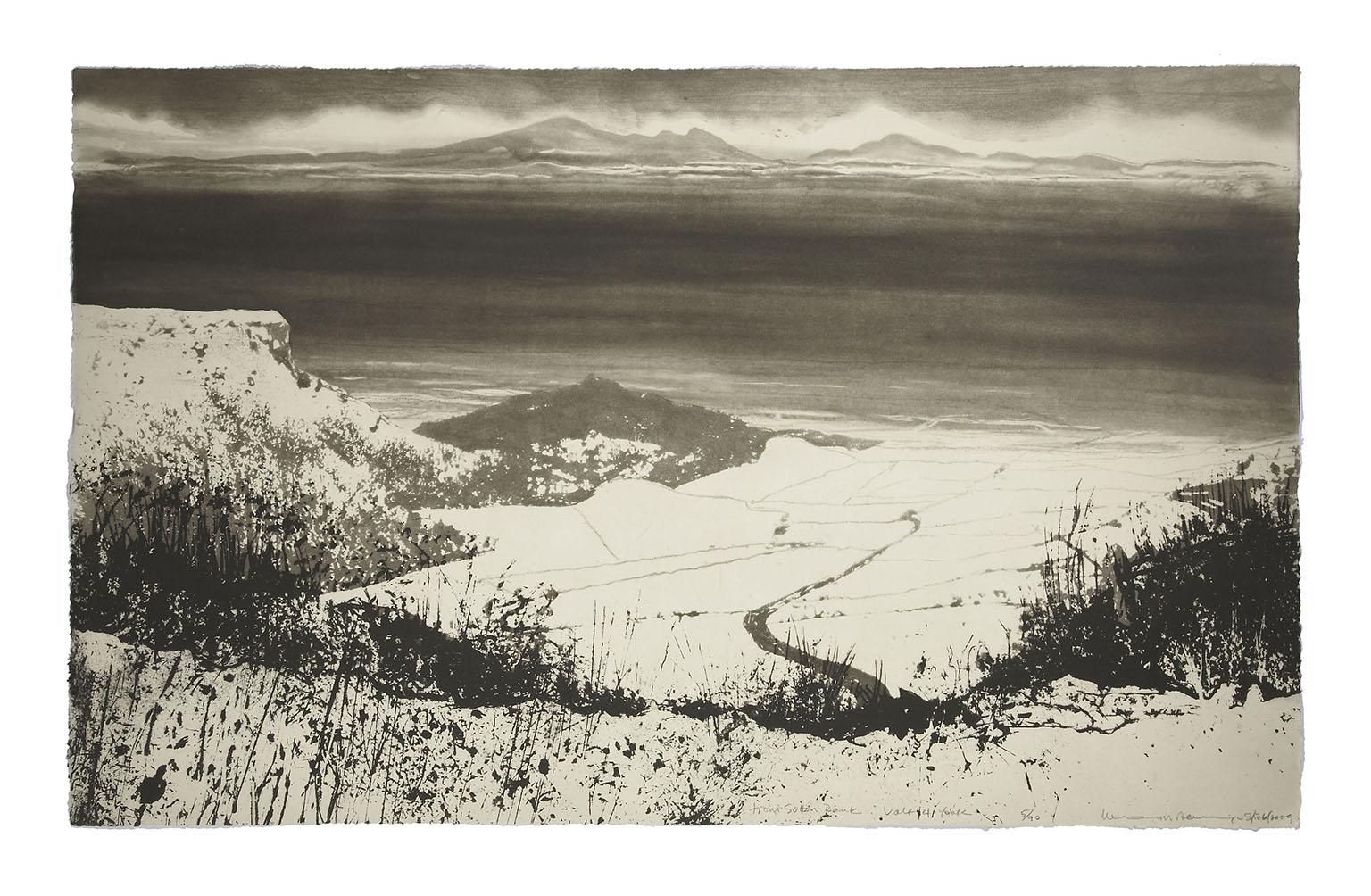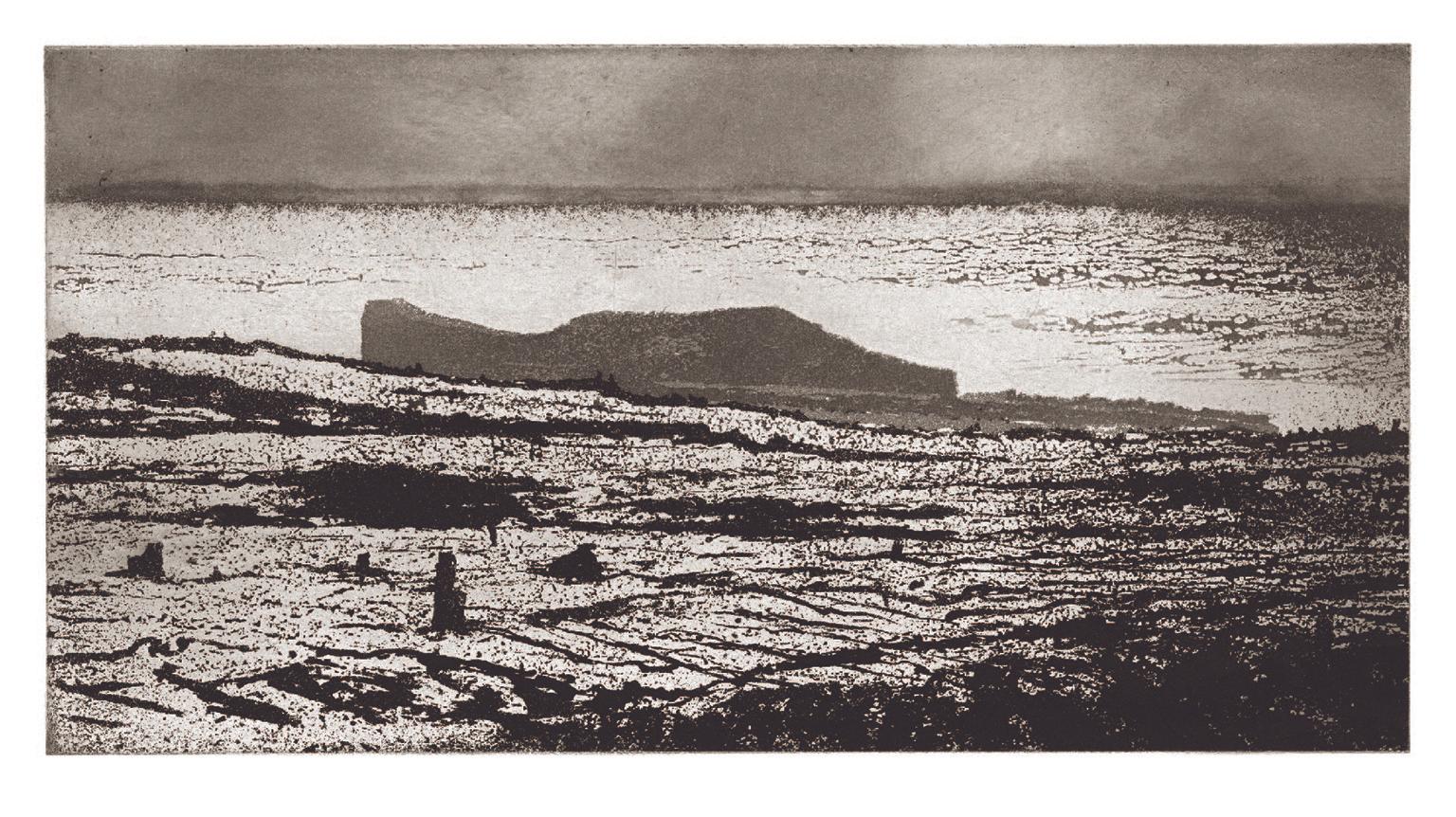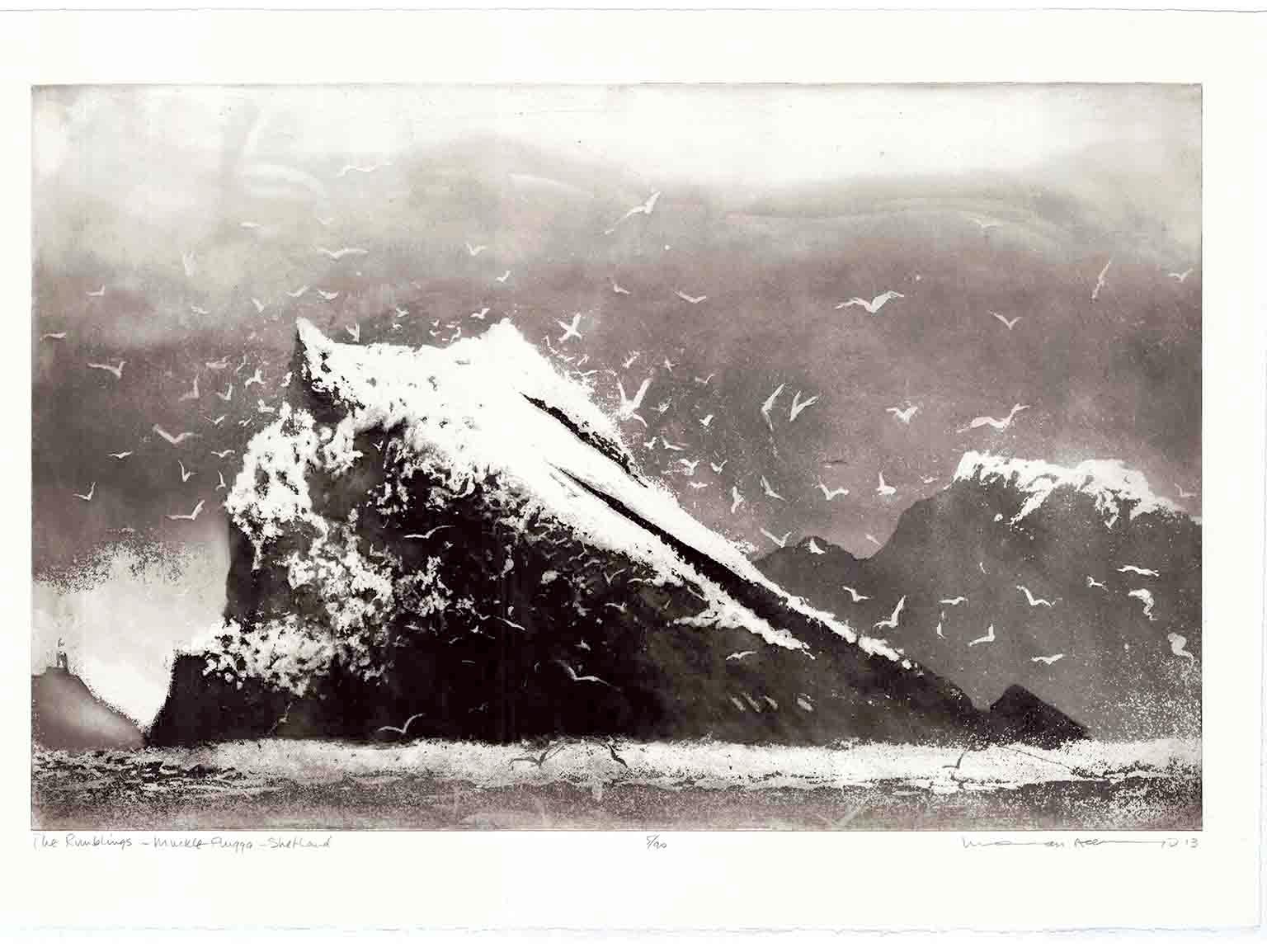Norman Ackroyd on the importance of art education

Landscape artist and printmaker Norman Ackroyd makes a powerful case for the inclusion of arts subjects in the modern curriculum.
Who is Norman Ackroyd?
Artist and printmaker Norman Ackroyd was born in Yorkshire in 1938. He studied at Leeds College of Art from 1956 to 1961 and at the Royal College of Art, London, from 1961 to 1964. A staunch advocate for the importance of art education, he was one of more than 100 artists who, in 2018, signed an open letter to The Guardian criticising the exclusion of arts and creative subjects from the new English Baccalaureate for secondary-school children. In the same year, he had an exhibition of his etchings and watercolours of landscapes and skylines along the British coast at Yorkshire Sculpture Park, an institution that shares his ethos, having been born out of Bretton Hall College in 1977.
Q. How have your upbringing and schooling influenced your opinions about art education?
I’m just putting together my show for Yorkshire Sculpture Park and thinking back a bit to where I was born and brought up, which was just north of the park. I went to grammar school in south Leeds, which was really the working-class area, but it was a very good school and very flexible. I did maths at A-level, and geography and art. The art teacher was incredibly generous and a really nice man. He just got people, you know? He would defend us against teachers trying to persuade us to do sciences and apply for university. When I was 13 he gave me the keys to the materials cupboard in the art room and said I could use it whenever I wanted. That was a tremendous boon for my self-confidence.

I was very single-minded; from very early on I wanted to go to art school. I was lucky to have a supportive mother. A lot of kids went home and their parents didn’t give a damn about education. My mother made it easy for me to do my homework – and made sure I didn’t not do my homework! I think parental discipline is terribly important. If home is a desert, kids don’t stand a chance. I always had a table and a working area in my bedroom. We also had a front room that never got used, so I just commandeered it. There was a table in the bay window and I could leave things out. I had to clear away at Christmas, and for one or two high-tea parties, but that was about it.
I would finish school at about four o’clock and go into the art room for two and a half hours, to perfect quiet, and just paint. That was terrific because an artist has got to learn to work on his or her own. When you are really working, you don’t want anybody around you. You don’t want any radio on. You don’t want any distraction. It taught me about real, serious concentration. I also learned a lot from my elder brother, who taught me how to play chess when I was about six. Chess is a great training for a young mind. We’d play nearly every evening.

It makes me sad to see what’s happening to the education system today. We’re losing our well-rounded education. They’re trying to get rid of the arts, as if the only thing that mattered were the sciences. It’s a mistake because the arts give people a more rounded view of life.
We had a discussion amongst the Royal Academicians at one of our recent general assemblies about the EBacc [English Baccalaureate for schools]. It generated a lot of feeling [about the lack of arts subjects] and a petition was set up. Hopefully there will be enough weight there to have some influence. I think it’s going to be one of those things where you’ve just got to be persistent. Gradually you’ll wear the opposition down.
Everybody has the capacity to be artistic, but the education system is mostly in the business of suppressing this creativity
I am also really disappointed that a lot of art schools are abandoning the absolutely magical, traditional etching process, which goes back to Dürer. They’re going over to some kind of dissolving plastic method because, for health-and-safety reasons, they don’t want to use acid. An etching room without acid is like a pub without beer! They say it’s dangerous. Well, lots of things in life are dangerous and you just have to teach people about these dangers. I’ve still got all my fingers, and I’m 80. There’s no danger in an etching room if you respect it. I don’t think it’s health and safety, I think it’s laziness. I’m planning to do a workshop as part of my exhibition. I like to do them where I can. I’m maybe trying to fill that gap in my own little way.
Everybody has the capacity to be artistic, but the education system is mostly in the business of suppressing this creativity. Children make wonderfully expressive stuff, but that soon gets knocked out of them. Art education really is about nurturing what’s already there. When I was at art school, you largely just drew all day. If in doubt, you’d go into the life room and draw, or you’d go out into the landscape and draw. I filled hundreds of books. It’s like doing your scales as a musician, or staying fit as an athlete. You need to do the donkey work.

Art is not necessarily intellectual; it can be a very instinctive, natural activity. It’s been intellectualised too much, I think. If you can’t write about it, you can’t be an artist – which is complete bullshit! Some artists are very coherent. Francis Bacon talked about art better than anybody I’ve ever heard. Some artists are completely incoherent with words, but very coherent with the marks they make. If art education becomes too academic, it dies.
Interview by Anna McNay.
A version of this article first appeared in the winter 2018 issue of Art Quarterly, the magazine of Art Fund.
'Norman Ackroyd: The Furthest Lands' was on show at Yorkshire Sculpture Park from 17 November 2018 to 24 February 2019.